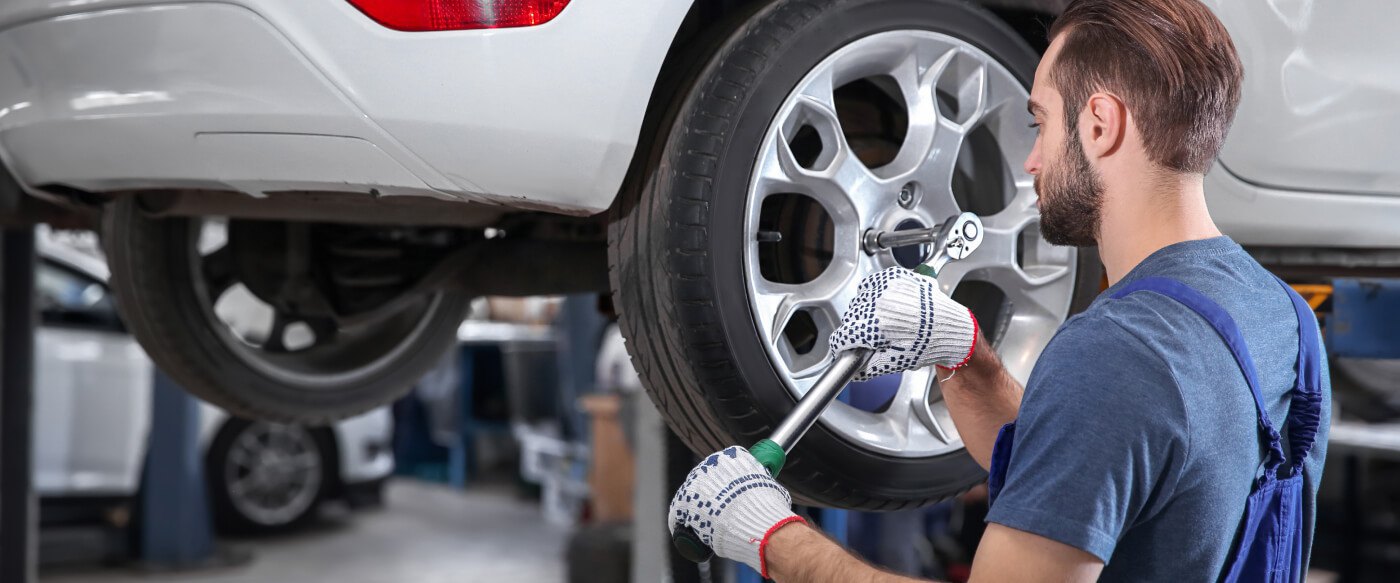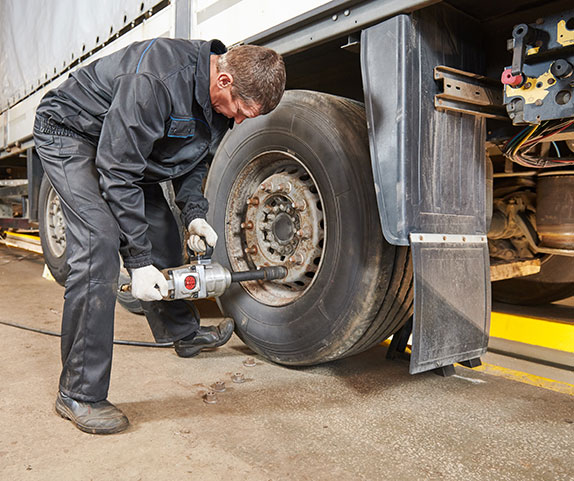Unlock Efficiency: Professional GMC Tire Service at Morris Tires
Unlock Efficiency: Professional GMC Tire Service at Morris Tires
Blog Article
Tire Solution: The Effect of Climate Condition
When it comes to making sure optimal efficiency and safety on the roadway, understanding the impact of weather condition conditions on tire service is critical. GMC Tire Service. In this discussion, we will certainly check out the detailed relationship in between weather problems and tire service, losing light on the value of weather-specific tire maintenance practices and factors to consider.
Heat and Tire Efficiency
When exposed to high temperatures, tires experience adjustments in performance that can dramatically influence vehicle security and handling. The heat produced from long term driving or heat problems triggers the tire rubber to soften, bring about minimized step life and increased wear. As the rubber becomes softer, the tire's grip when traveling reduces, affecting braking distances and overall traction. In extreme cases, excessive warmth can also create tire blowouts, posing a serious security risk to the vehicle and its residents.

Winter Results
Cold weather condition problems can have a substantial impact on tire performance and safety. In cool weather, tires might additionally lose air stress extra swiftly, which can affect handling and fuel performance.
To minimize the results of winter on tires, it is critical to routinely examine tire pressure and inflate them to the manufacturer's suggested degrees. Using wintertime or all-season tires created for cold weather condition problems can additionally improve traction and grasp on icy or snowy roads. Correct tire upkeep, consisting of normal assessments for wear and damages, ends up being much more important throughout chillier months to make sure optimal performance and safety and security.
Rainy Conditions Effect
Throughout rainy problems, tire performance and security can be considerably affected by the damp road surface areas and lowered visibility. The step pattern of tires plays a vital duty in keeping grip on damp roads. Tires with damaged treads are much more vulnerable to hydroplaning, where a layer of water develops between the tire and the road surface, leading to loss of grip. To fight this, chauffeurs ought to on a regular basis check their tires for sufficient tread deepness and think about buying tires specifically made for wet conditions.
Additionally, wet weather can additionally reduce presence, making it challenging for drivers see this to see the roadway in advance clearly (GMC Tire Service). In such problems, it is essential to readjust driving rates appropriately and maintain a secure adhering to range to enable unexpected stops. Properly inflated tires can also assist in preserving control on damp roads by supplying much better handling and hold
Snow and Tire Safety And Security
When driving in snowy conditions, having the appropriate tires can make a substantial distinction in safety and efficiency. Winter months tires are designed with special rubber compounds and tread patterns to offer better traction on snow and ice contrasted to all-season tires.

It is essential to follow supplier directions when mounting and making use of tire chains to protect against damage to the tires and car. By picking the right tires, preserving proper inflation, and thinking about extra traction help like tire chains, vehicle drivers can enhance their safety when browsing snow-covered roadways.
Weather-Related Tire Upkeep
When encountered with look here different climate condition, proper tire maintenance becomes an essential element of vehicle security and performance. Weather-related tire upkeep incorporates a range of methods intended at making certain optimal tire function and long life in various weather condition circumstances. One vital element of weather-related tire upkeep is tire pressure law. Fluctuating temperature levels can trigger tire stress to vary, impacting traction and gas performance. Routinely inspecting and adjusting tire pressure according to supplier referrals is crucial for safe driving in altering weather. Additionally, tire tread depth plays a considerable function in managing various weather elements. Tires with adequate step depth offer better grasp on damp or icy roadways, lowering the danger of hydroplaning or skidding. When walk wear reaches a particular deepness is vital for keeping traction and stability in damaging climate, evaluating tire walk frequently and replacing tires. By prioritizing weather-related tire maintenance, chauffeurs can improve security, enhance automobile performance, and prolong the lifespan of their tires.
Final Thought
In final thought, weather problems have a considerable influence on tire performance and safety and security. From heat impacting tire stress and wear to chilly weather condition decreasing grip, it is essential to think about my link the weather when preserving and using tires.
In this discussion, we will explore the elaborate partnership between climate conditions and tire solution, losing light on the relevance of weather-specific tire upkeep techniques and considerations.

Report this page